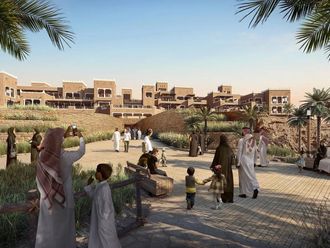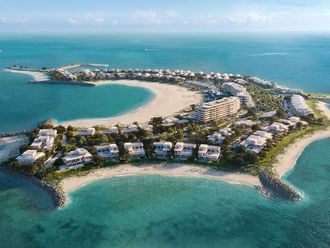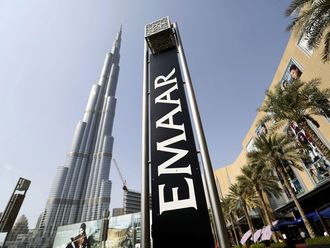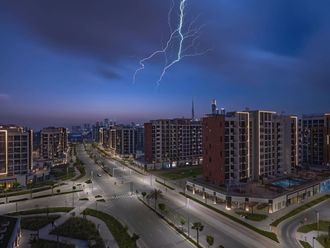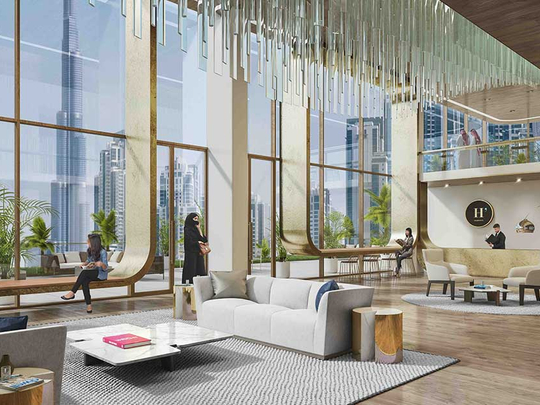
Dubai: The deal for Abu Dhabi-based Eshraq Properties to acquire Reem Investment is expected to be finalised in the next three months and will more than double Eshraq’s market capitalisation when complete.
Fawad Tariq-Khan, general manager at Shuaa Capital, the investment bank that is serving as Eshraq’s financial adviser on the deal, said the acquisition will give Eshraq leverage in terms of accessing financing, sales, and expertise.
“I think the intention is to close this (acquisition) in the coming weeks or months. It will be before the year-end. Today. If you look at Eshraq, their market cap is around Dh1.5 billion to Dh2 billion. Once they complete their acquisition of Reem, their market cap will significantly increase, so it will be a much larger listed entity,” Tariq-Khan told Gulf News.
In a joint statement in late August, Eshraq Properties said discussions were at an advanced stage for a potential acquisition of Reem Investment’s entire business and assets. The deal will create the second largest listed property developer in Abu Dhabi.
Market capitalisation, synergies
Tariq-Khan declined to disclose figures on the deal, but said it will more than double Eshraq’s market cap. Asked to elaborate, he said Eshraq’s capitalisation would be somewhere between doubled and tripled once the acquisition is completed.
Currently, Eshraq’s market capitalisation is around Dh2 billion, according to data on the Abu Dhabi bourse where the company is listed. Looking at other listed developers in Abu Dhabi, Manazel Real Estate, for example, has a market cap of nearly Dh1.38 billion while blue chip Aldar Properties has a market capitalisation of around Dh18 billion.
Asked about cost-cutting measures once the deal is finalised, Tariq-Khan did not disclose figures, but said there are “synergies that can be realised because they have the back office of both companies.”
“I think what’s more important is cost-savings in terms of what the scale of the combined entities offers you in terms of financing costs, dealing with contractors, sales workforce … so that’s where you will see a lot more synergies, and that’s where Eshraq will have the advantage,” he said.
In their statement earlier, the companies said the deal remains subject to a number of conditions, including the final agreement of specific terms including price and regulatory approvals.
The acquisition will be by way of offering Reem, a private company, new shares that are to be issued by publicly-listed Eshraq.
“I think they will become one of the heavyweights. When you look at Eshraq — it’s a listed company so its financials are public — they have zero debt. How many real estate developers do you know in the market that have zero debt? They’re already in a very strong position from a capital perspective. What they’re going to get out of this merger is going to be the scale,” Tariq-Khan said.
He stressed that scale was a key advantage for the property developer going forward as it helps with financing. Tariq-Khan said that with multiple companies in the market competing to get their projects financed, scale is important and will drive consolidation in the industry.
Consolidation
“It’s no secret there’s a lot of consolidation happening in the industry. This is one such consolidation that we’re advising on; we think it’s positive for the market because it allows you to combine the land banks, the expertise, among other aspects,” the general manager said.
The deal between Eshraq and Reem comes amid consolidation across various industries in the UAE that accelerated in 2016 and 2017 as businesses focused on cost-cutting to counter an increasingly-challenging macro-environment. This was driven by lower oil prices in the UAE, tighter liquidity, and slower economic growth.
In April 2017, the merger between the National Bank of Abu Dhabi (NBAD) and First Gulf Bank (FGB) became effective, creating one of the largest banks in the Middle East and North Africa (now called First Abu Dhabi Bank).
In other sectors, investment vehicle Mubadala Development Company merged with International Petroleum Investment Company in January 2017, creating a company with around $125 billion in assets.
“We do see a lot more consolidation happening, not just in the real estate sector but across all sectors. We’re already seeing it in banking with NBAD and FGB, and other banks talking about it. Even Shuaa’s acquisition of Integrated Securities and Integrated Capital can be viewed as one of those. You have 50-odd brokerages in the UAE today, and it’s very fragmented market, and some of them will have to merge in order to survive,” Tariq-Khan said.
He added, “We also think it’s (the Eshraq/Reem deal) a positive story because it’s not common within the region to see these kinds of mergers between a private company and a listed company where the private company shareholders are issued shares in the listed company, so it requires a lot of work with the regulators to make it work.”


